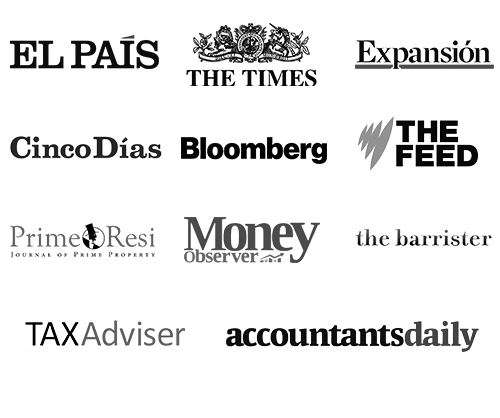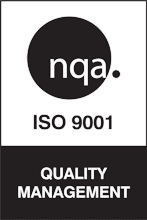Qatari Legal Advice
Arab law is one of the main features of Qatari legislation and reflects the religious and cultural nature of the region. Our Qatari lawyers specialise in this diverse and complex legal system, currently practiced in 25 countries, which includes some elements of Sharía.
Qatar is an emerging country with a thriving economy. A modern country with great aspirations, it is a very attractive country to do business with.
In line with Qatar National Vision 2030 which aims to attract foreign direct investment and establish a knowledge-based and diversified economy, the Qatari government enacted Qatar Law No. 1/2019 regulating the investment of foreign capital in economic activity in the country. This law provided a much improved legal and business-friendly environment for foreign investment, including
- wide freedoms in the investment sector
- eligibility for significant incentives
- access to alternative forms of dispute resolution.
The Arab Law system in the Gulf Cooperation Council (GCC), includes Qatar, the UAE, Oman, Kuwait, Bahrain and Saudi Arabia. The GCC economy relies on a strong legal system, most of it translated to English. An understanding of all aspects, combined with insights into the richness and depth of Arab business culture, is fundamental to interpret it.
Our Arabic law specialists have been advising international companies in the Gulf since 2010. With our Qatari desk in Doha, we advise businesses that are considering doing business in Qatar, from establishing a local presence, investing or conducting cross border transactions with Qatar counterparts. We also advise Qatar based clients on their regional and international transactions with our knowledge and experience of both local and international law.
Contact us for more information
Qatar’s tax laws
There are two tax regimes in Qatar: the state of Qatar tax regime, operated by the General Tax Authority (GTA), which applies to the majority of businesses operating in Qatar; and the Qatar Financial Centre (QFC) tax regime, operated by the QFC Tax Authority within the QFC Authority.
Qatar does not impose personal income taxation; only income from a business is taxable in Qatar. Having residence in Qatar is defined by the following characteristics:
- Natural person who satisfies any of the following requirements: a) Has a permanent home in the state; b) Has been in the state for more than 183 consecutive or separate days during any 12-month period; c) Has his centre of vital interests in the state.
- Legal person who satisfies any of the following requirements: a) It is incorporated under Qatari legislations; b) It’s head office is situated in the state of Qatar, or c) It’s place of effective management is situated in Qatar.
Entities wholly owned by Qataris and other GCC nationals are exempt from corporate income tax but may be required to file tax returns.
Under the state of Qatar tax regime, the standard corporate tax rate is 10%. No foreign tax credit is available under the state of Qatar tax regime. The QFC tax regime offers double taxation relief and provides for unilateral credit relief.
These tax regimes are complex and specialist legal and tax advice is required to ensure compliance. Here are a few highlights of the system:
Qatari Business structures and taxation
The most common legal entity structures are
- limited liability companies
- limited partnership
- private shareholding companies
- public shareholding companies
- joint venture company
- branches of a foreign company
- special purpose company
- single-family office and trust
A corporation is deemed resident in the state of Qatar if it is incorporated under Qatari law or if its head office or place of effective management is in Qatar.
Full foreign ownership is possible under the QFC regime, which is available to companies that carry out certain permitted activities and apply for a QFC licence. Special purpose companies (i.e., registered funds, special investment funds, special funding companies, alternative risk vehicles and charities) may elect exempt status. Qatari-owned companies may elect a 0% concessionary rate if certain conditions are fulfilled.
Qatar Free Zones Authority
The Qatar Free Zones Authority (QFZA) was established in 2018 as an independent entity to develop free zones in Qatar. The QFZA focuses on logistics, chemicals, maritime industries, heavy manufacturing, emerging technologies and industrial sectors. Benefits of setting up in one of the free zones include the possibility of 100% foreign ownership and a 20-year tax holiday, i.e., exemption from corporate tax, personal income tax and Customs duties.
Companies registered in the Qatar Science and Technology Park (QSTP) are not subject to tax, even if wholly owned by foreign investors, and are permitted to trade directly in Qatar without a local agent. They also are permitted to import goods and services free of Qatari Customs duty. The QSTP is intended for companies engaged in research and development activities.
Agreement between Qatar, Spain and UK for the Avoidance of Double Taxation
Qatar has signed a double tax treaty agreement with the UK and Spain for the avoidance of double taxation and the prevention of fiscal evasion with respect to taxes on income.
Qatar Foreign Investments
As a general rule, foreign investors are permitted, subject to certain exceptions, to conduct business in Qatar provided that they do so in partnership with at least one Qatari person or entity, and that they own no more than 49% of the share capital of a company incorporated in Qatar.
Qatar Law No. 1/2019 now allows complete foreign ownership of a Qatari entity in any economic sector subject to the rules set forth in the Executive Regulations and to the approval of the Competent Department. It also allows foreign companies to register a branch in Qatar for the purpose of carrying out contracts.
Qatar has concluded some 58 bilateral investment treaties (BITs), 25 of which are currently in force. The precise scope and coverage of any given BIT depends mainly on the manner in which it defines investors and investments.
Why choose Del Canto Chambers?
Del Canto Chambers provides dual-qualified, multi-lingual tax lawyers, who have worked on over 500 cases throughout Europe, the Middle East, Latin America and Asia, making us the counsel of choice for London-based and international clients, corporations, solicitors and tax advisers.

Major Cases
Corporate Cases
We have worked on several corporate cases including some of the worlds leading companies in media, luxury boats, football clubs, NGOs, investments and much more

Maryam Jassim Al-Bader
GCC Legal Senior Counsel Lawyer (Doha)
How we can help
Maryam runs Del Canto’s Qatar Desk, providing legal advice to private clients and companies in the Gulf.
Maryam Jassim Al-Bader is an international Qatari lawyer with more than 8 years’ experience working in the GCC. Maryam has worked as in-house legal counsel in one of the biggest organizations in Qatar, where she handled the establishment of the Intellectual Property division. Maryam has handled a variety of Intellectual Property legal matters internationally and locally.
We offer international and Qatari legal advice in English and Arabic and are one of the few independent law firms able to advise on local Qatari law. We believe in cultural immersion as the prerequisite to develop strong partnerships in the Arab world and our understanding of local and regional business practices, the tax and legal issues and the regulatory practices are key to the advice we provide in Qatar.
We have worked on a number of cases in Qatar and the Gulf region including:
- Grupo PRISA, the largest media group in the Spanish-speaking world: Securing and negotiating a capital investment by Qatari investor Sheikh Khalid al Thani for Grupo PRISA, which exceeded €120m.
- Diario AS, the largest sports newspaper in the Spanish-speaking world: Setting up AS in Arabic. Representing AS in a joint venture between Grupo PRISA and the Qatari media group, Dar Al Sharq.
- Huffington Post: Advising on all legal and tax implications of a joint venture between Integral Media group and Arianna Huffington at Huffington Post to publish Huffpost Arabi.
- Novo Cinemas Master Franchise project: Project managing the project to re-brand Grand Cinemas, the largest Cinema chain in the Middle East, and franchise it as Nova Cinema.
- Al Sharq Forum Foundation, Geneve and Istanbul: Setting up a non-profit think tank in Geneva dedicated to promoting a dialogue between the Middle East and Europe.
- Gulf Film & Grand Cinemas acquisition: Advising on final completion and the governance framework for Qatar Media’s acquisition of Gulf Film and Grand Cinemas.
Del Canto Chambers offers a turnkey project management approach with a full-service support system, including decision-making protocols and timelines. We offer proven turnkey solutions to successfully manage international projects with multiple local country partners, helping you navigate international complexities. This holistic turnkey approach facilitates effective coordination between different parties, and jurisdictions, ensuring that projects are delivered on time and budget, from initial execution through to completion.
Del Canto Chambers specialists are constantly up to date with new legislative changes and aware of any tax and legal implications. We understand local and regional GCC business practices, the tax and legal issues and the regulatory practices. Our clients can rely on credible advice, tailored to their unique requirements, whilst taking into account the diverse and complex legal and tax systems in the country they wish to do business in.
Through our office and partnerships in Qatar, we work with local accounting, financial, tax and business advisory services and can put our clients in touch with local business support.


